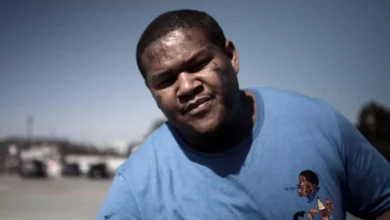Welcome to a journey towards mastering patience and embracing the art of observation. In a fast-paced world where instant gratification often precedes, learn to sit back and observe. Not everything need – tymoff becomes invaluable. Today, we delve into the importance of patience, understanding the power of observation, and how to cultivate these qualities in our daily lives. So grab a cup of tea, settle into your favorite spot, and let’s explore why sometimes slowing down is the key to moving forward.
The Importance of Patience
Patience is not just a virtue; it’s a powerful tool that can transform how we navigate life. In a world where everything moves at lightning speed, cultivating patience allows us to pause, reflect, and respond thoughtfully instead of impulsively.
When we practice patience, we open ourselves to new possibilities and opportunities that may have passed us by in our haste. It enables us to approach challenges calmly, leading to better decision-making and more positive outcomes in the long run.
Moreover, patience fosters resilience and inner strength. By learning to wait for the right moment or outcome without succumbing to frustration or anxiety, we build emotional stability and mental fortitude that serve us well in all aspects of life. So, next time you feel the urge to rush or force things to happen quickly, remember the profound impact that embracing patience can have on your journey toward personal growth and fulfillment.
Understanding the Art of Observation
Observation is an art that often goes unnoticed in the hustle and bustle of daily life. It’s about more than just seeing; it’s about truly understanding. When we observe, we are present in the moment, picking up on subtle details that might otherwise slip by.
To master the art of observation, we must engage all our senses. Notice the colors, sounds, and smells around you. Pay attention to body language and facial expressions – they can speak volumes without a single word being uttered.
Observing nature – its beauty and rhythms can teach us patience and perspective. Practice active listening when engaging with others; hear what they say beyond just their words.
By honing our observational skills, we become better attuned to the world. We gain insights into situations, people, and ourselves, leading to deeper understanding and connection.
How to Cultivate Patience in Daily Life
In the hustle and bustle of everyday life, cultivating patience can seem like a daunting task. However, with small daily practices, you can effortlessly train your mind to embrace patience.
Start by setting realistic expectations for yourself and others. Understand that not everything will go according to plan, and that’s okay. Embrace flexibility in your mindset.
Practice mindfulness techniques such as deep breathing or meditation to help you stay calm and centered when faced with challenges. By grounding yourself in the present moment, you can avoid getting caught up in feelings of impatience.
Learn to appreciate the journey rather than just focusing on the end goal. Each step along the way is an opportunity for growth and learning. Take time to celebrate small victories and progress made.
Remember that Rome wasn’t built in a day – true mastery of patience takes time and practice. Be gentle with yourself as you navigate this journey towards a more patient and peaceful existence every day.
learn to sit back and observe. not everything need – tymoff
Have you ever felt overwhelmed by the constant rush of life, constantly feeling the need to be in control and have everything figured out? It’s time to step back and embrace the art of observation. Sitting back and observing allows us to see things from a different perspective, gaining valuable insights that we may have missed otherwise.
In a world filled with instant gratification and quick fixes, there is beauty in simply observing without feeling the urge to react or intervene immediately. Not everything needs an immediate response – sometimes, patience can lead to better outcomes than rushed decisions.
By mastering sitting back and observing, we fully allow ourselves to appreciate the present moment. We become more attuned to our surroundings, noticing details we may have overlooked. So next time you feel compelled to jump into action hastily, remember to learn to sit back and observe. Not everything need – tymoff.
Coping with Impatience and Frustration
Impatience and frustration are common emotions that can easily cloud our judgment and hinder our ability to stay calm. When faced with a situation that tests your patience, it’s essential to take a step back and assess the root cause of your feelings. Maybe you’re feeling overwhelmed by external pressures or internal expectations.
Instead of reacting impulsively, try to pause for a moment and breathe deeply. This simple act can help you regain control over your emotions. Remember, not everything needs an immediate response! Sometimes, allowing yourself the time to process the situation can lead to better outcomes in the long run.
Practice self-care techniques like meditation or exercise to channel your energy positively. Surround yourself with supportive individuals who understand your struggles and offer encouragement. Acknowledging your feelings without judgment, you can start coping with impatience more effectively.
Remember, learning to sit back and observe doesn’t mean being passive; it means choosing when to act mindfully rather than react impulsively.
Learning to Let Go and Trust the Process
When we learn to let go, we free ourselves from control. Letting go doesn’t mean giving up; it means releasing our attachment to outcomes and surrendering to the flow of life. Trusting the process is about having faith that things will unfold as they are meant to, even if it’s not according to our timeline or expectations.
It can be challenging to relinquish control, especially when we’re used to micromanaging every aspect of our lives. But by loosening our grip on situations and allowing things to progress naturally, we open ourselves up to new possibilities and opportunities that we may have never considered.
Trusting the process also involves accepting uncertainty and embracing ambiguity. It requires us to have patience and believe that everything happens for a reason, even if we can’t see it in the moment. By letting go of our need for immediate answers or solutions, we create space for growth, resilience, and inner peace.
Conclusion: Embracing Patience for a Happier Life
Mastering the art of patience and observation is a journey that takes time and practice. By learn to sit back and observe. Not everything need – tymoff, we can cultivate a sense of calmness, clarity, and understanding. Remember, not everything needs an immediate reaction or solution. Sometimes, the best action is simply waiting, watching, and trusting the process.
Patience allows us to navigate through life’s challenges with grace and resilience. It helps us cope with frustration and uncertainty while maintaining a positive outlook. By embracing patience, we can release unnecessary stress and anxiety, leading to a happier and more fulfilling life.
So next time you feel impatient or restless, take a deep breath, remind yourself to sit back and observe. Trust that everything will unfold in its own time. Embrace patience as your ally toward greater peace of mind and contentment.
You May Also Read
usatimenework
errordomain=nscocoaerrordomain&errormessage=could not find the specified shortcut.&errorcode=4It is not wisdom but Authority that makes a law. t – tymoff




